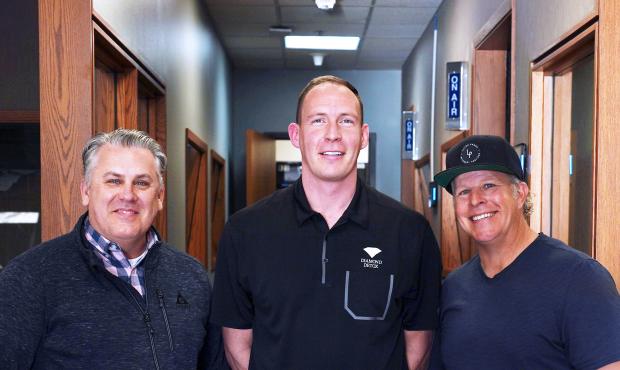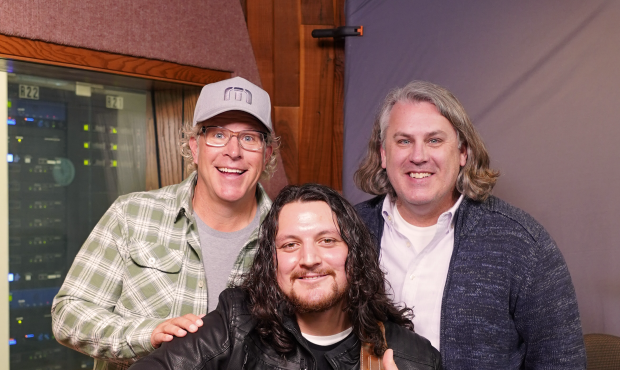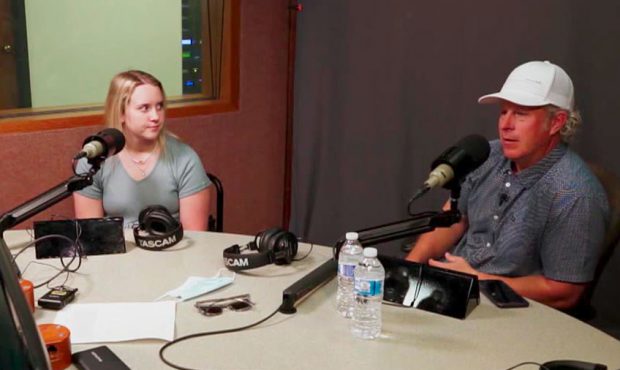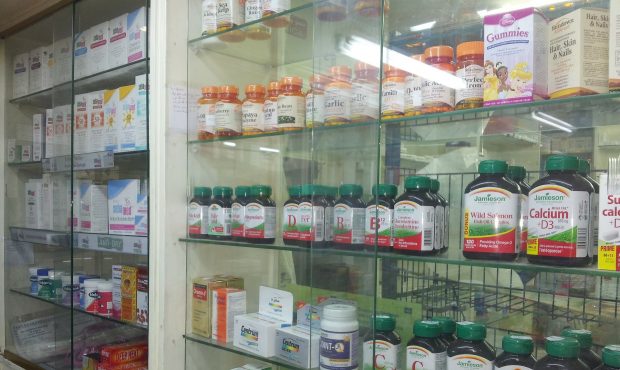How mindfulness can be another tool to curb addiction
Oct 30, 2019, 9:05 AM | Updated: Oct 31, 2019, 10:06 am

In this episode of the 'Project Recovery' podcast, we dive into how mindfulness and meditation can help curb addiction.
In 2017, approximately 19.7 million people aged 12 or older had a substance use disorder (SUD). Now, mindfulness is being considered an underrated tool in suppressing addiction, according to Dr. Matt Woolley, a clinical psychologist from the University of Utah and co-host of the ‘Project Recovery.’
In the latest episode, he details some of the ways mindfulness and meditation are doing their part in keeping former addicts on the road to recovery.
Can mindfulness really help fight off an addiction?
At its core, mindfulness sounds incredibly simple. Mindfulness is the state of active, open attention to the present — to focus on the here and now.
Dr. Matt says that being able to calm down, relax, and focus your thoughts, has the potential to curb some of the heaviest of addictions, including opiate addiction.
“People that practice mindfulness can either discontinue or use a much lower dose of their opiate medication over time,” he said.
Research coming out of the University of Utah shows how powerful mindfulness truly can be. Eric Garland, director of the Center on Mindfulness and Integrative Health Intervention Development as well as associate dean for research in the U.’s College of Social Work, found that practicing mindfulness could play a role in reducing stress. Along with reducing stress, he found that it could improve the ability to handle negative thoughts and enable people to react less to alcohol cues.
When you practice mindfulness, it’s like “taking your brain to the gym,” he said. As a result, your attention is focused on the here and now.
Dr. Matt also acknowledged that by bringing yourself to the present, slowing your breathing, and focusing on your senses, you start to strengthen neural pathways of control of your thinking.
“Our brains are very trainable in a similar way that our muscles are,” Dr. Matt said. ” If you do not control how your thoughts go, if you don’t learn how to train your thinking process, then guess what? Strong things in your environment will, like an addiction.”
The connection between mindfulness and meditation
While you may hear the two mentioned in the same sentence, mindfulness and meditation are, in fact, two separate ideas. Simply put, mindfulness is the concept of being aware and is a form of meditation; meditation is the concept of engaging in contemplation or reflection of one’s self.
While the art of practicing mindfulness has been around for centuries, it has become more popular within the past decade. In 2012, the use of meditation increased from 4.1% to 14.2% in adults. Statistically, mediation (14.2%) was just barely behind yoga (14.3%) as the most popular “Mind and Body” practices in the US. There’s plenty of reasons why the trend is on the rise; one being pain management.
The go-to treatment for such chronic pain has typically been opiates. Unfortunately, most prescribed medication comes with long-lasting and intense side effects. Dr. Matt says that’s leading to mindfulness becoming more popular to manage pain.
“Every medication has side effects and the side effects of opiates are, you feel disconnected and you can feel nauseous,” Dr. Matt said. “There’s a lot of research on things like using mindfulness to do pain management and therefore reduces the likelihood that a person is going to become addicted.”
Getting help and tips for staying mindful
Ultimately, the goal of incorporating mindfulness and meditation is to help fight off addiction. On the path to recovery, staying focused on a sober lifestyle is essential to avoiding relapse and mindfulness and meditation might not be enough to keep addiction at bay. Dr. Matt recognizes that being mindful and practicing meditation is just another tool in the toolbox, so to speak.
“If a person is right in the middle of their addiction … they need to go get dry; they need to get clean,” he said. “Go through a detox. Most people are most successful when they go to a recovery center because you’re living and breathing it every day.”
If you are new to the concept of meditation and mindfulness, Dr. Matt recommends ‘Head Space‘ or ‘Calm‘, two apps that you can download to help introduce you to meditation.
For more information and resources surrounding mindfulness, you can visit the ‘Project Recovery‘ page on KSLTV.com. To hear more from Casey Scott and Dr. Matt Woolley, you can listen below or subscribe to the ‘Project Recovery’ podcast on Apple Podcasts or wherever you get major podcasts.












